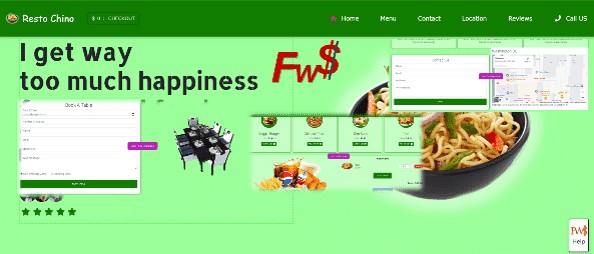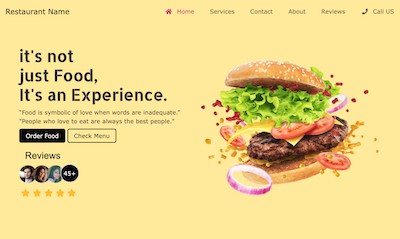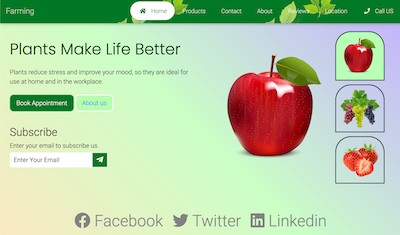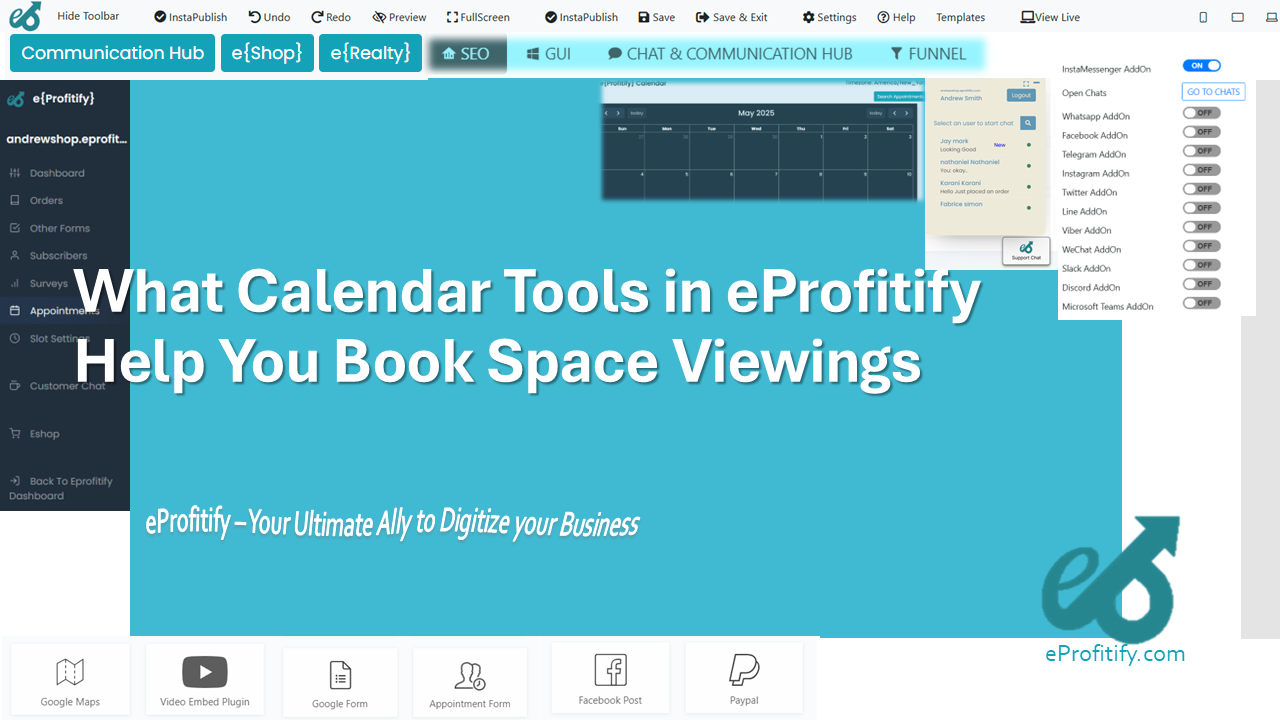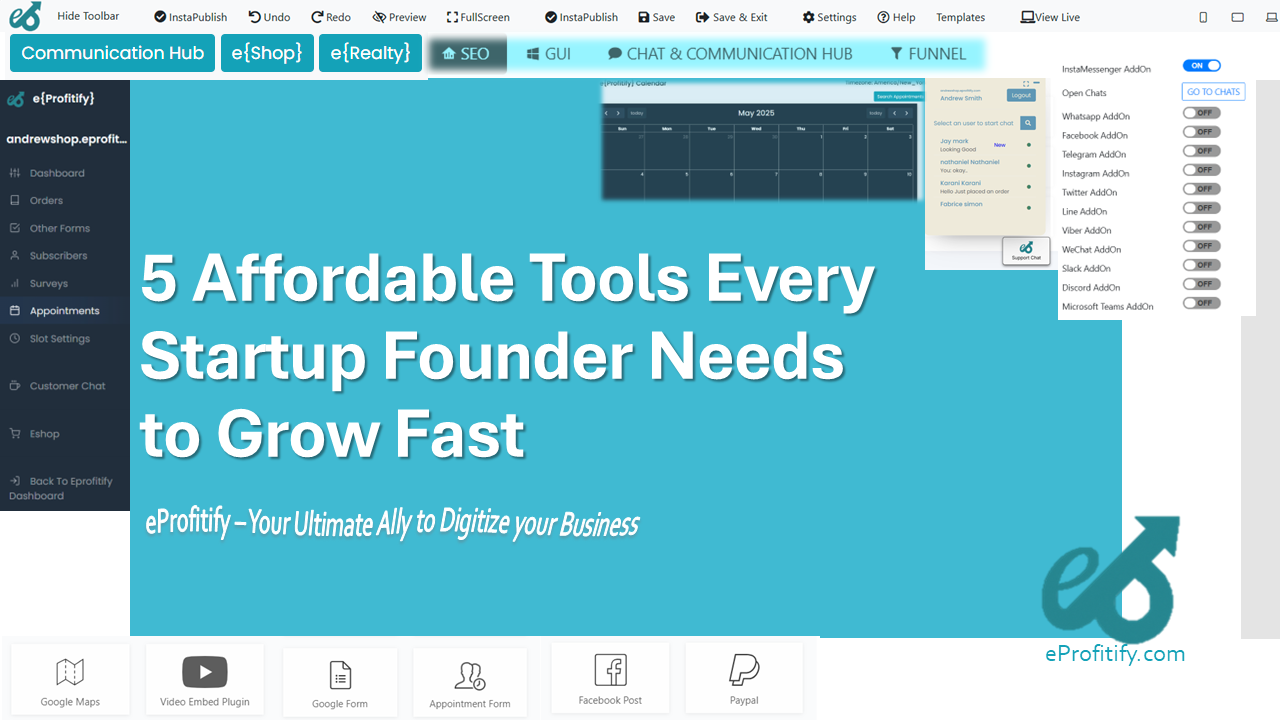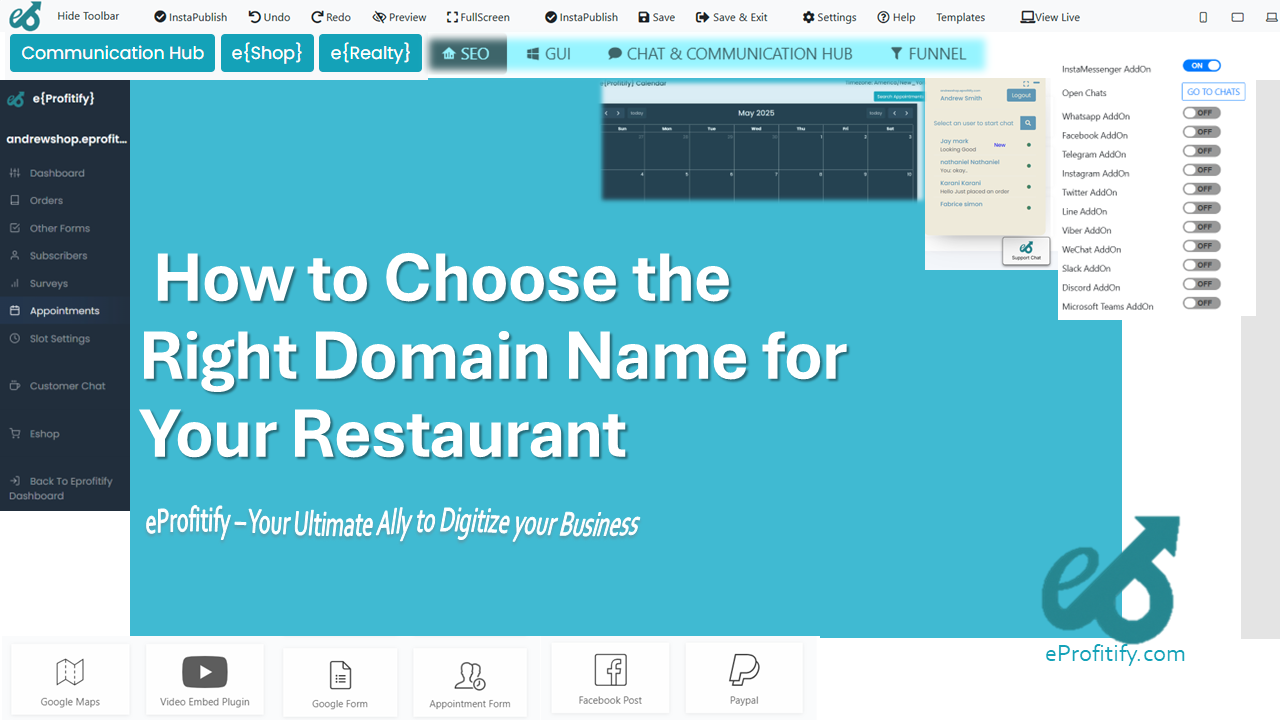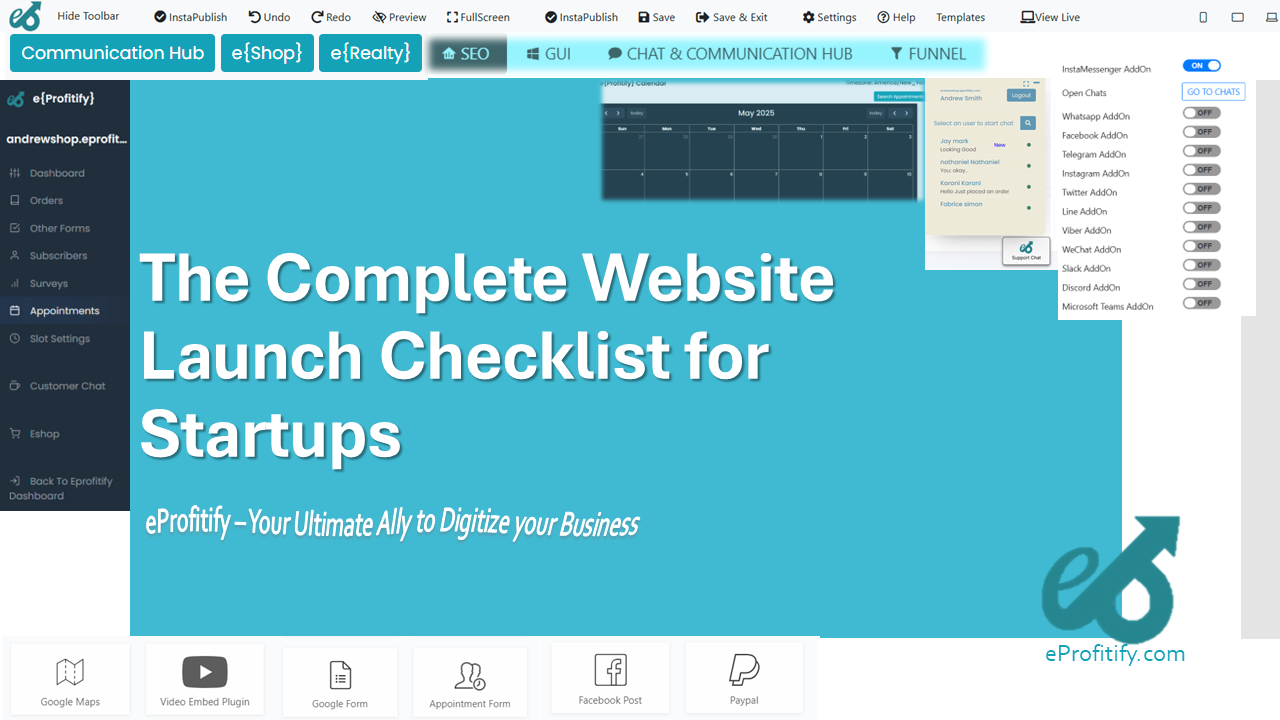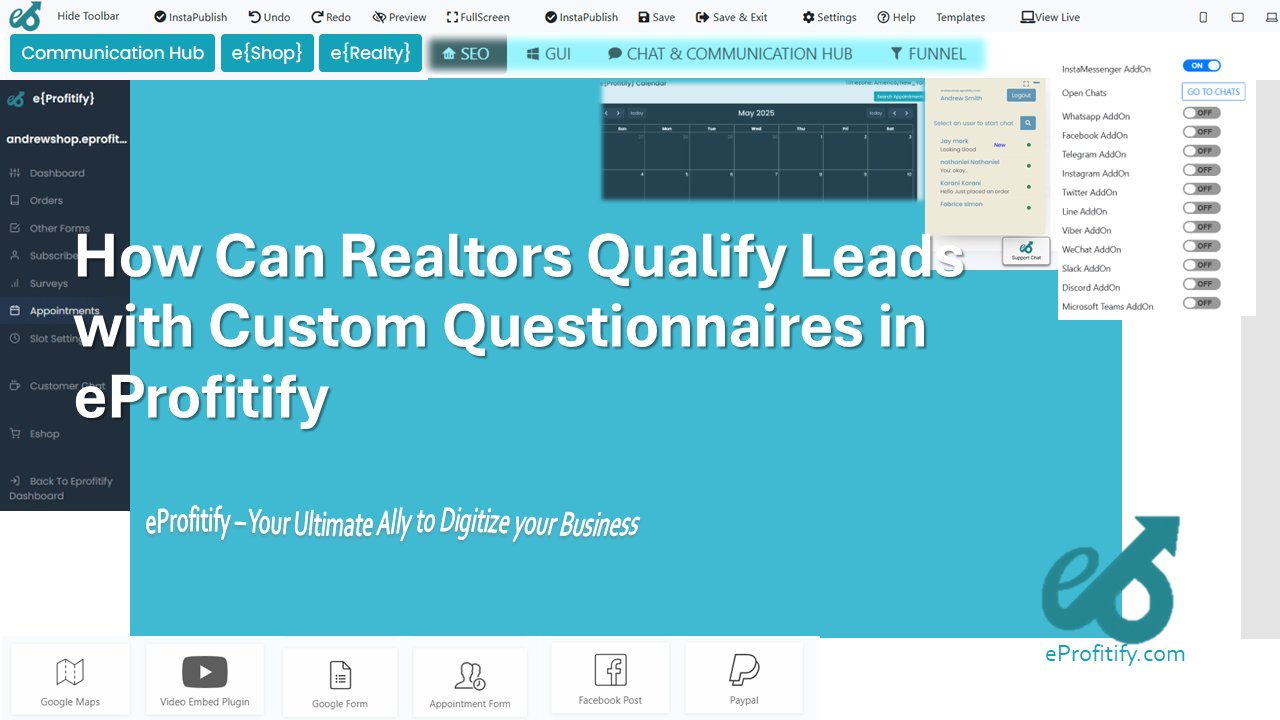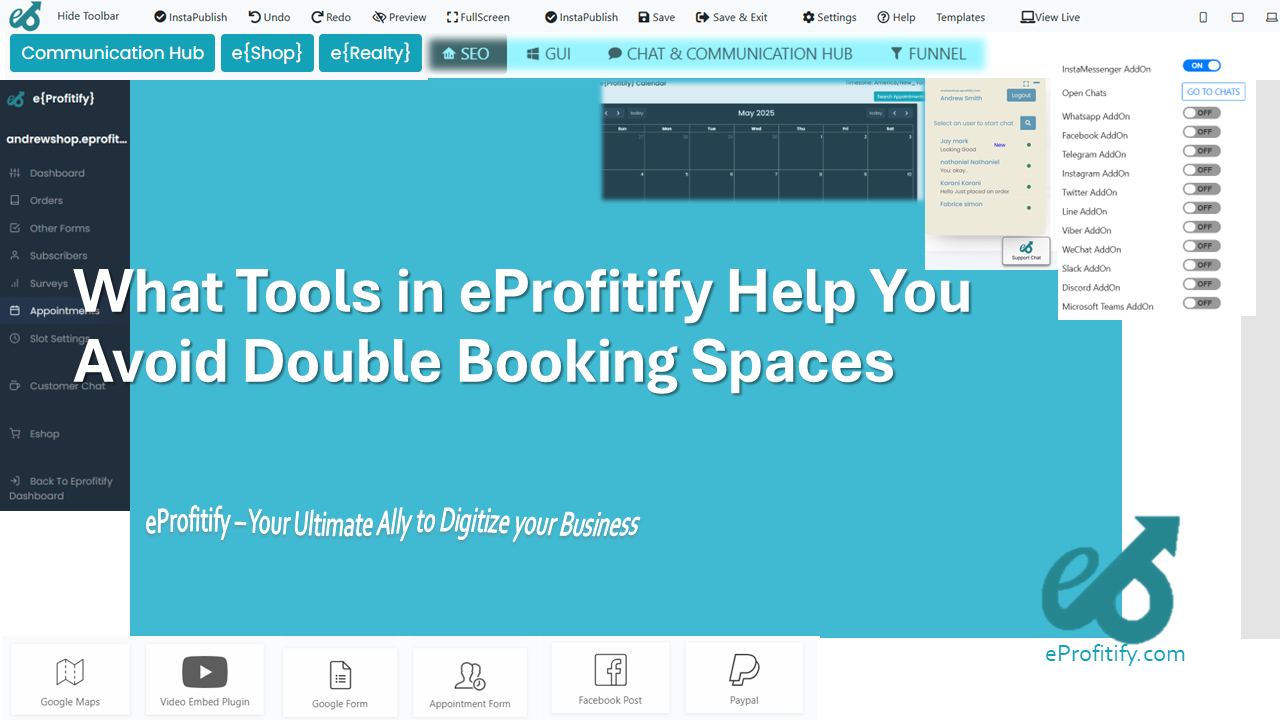Can eShop in eProfitify scale Health Food Stores
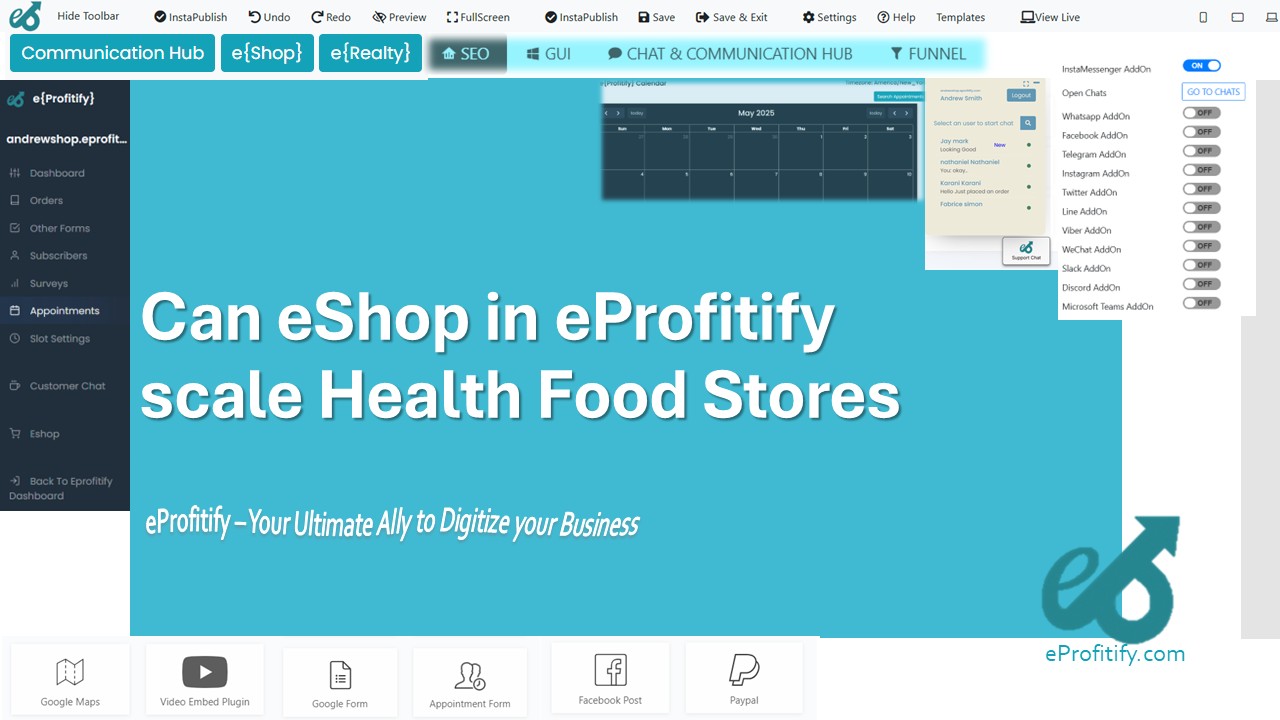
Schedule a LIVE Zoom call with an eProfitify Expert.
The global health food industry has experienced exponential growth in recent years, driven by increasing consumer awareness of wellness, sustainable living, and dietary preferences. According to Grand View Research, the health food market was valued at $1.1 trillion in 2023, with projections to grow at a compound annual growth rate (CAGR) of 5.9% through 2030. In the U.S. alone, organic food sales surged to $61.7 billion in 2023, reflecting a 4% YoY increase (Organic Trade Association). However, health food stores often face operational challenges, including fragmented customer engagement, inefficient inventory management, and limited digital presence. eProfitify, a leading website publishing and management platform, addresses these hurdles through its eShop module, enabling health food businesses to scale operations, automate workflows, and enhance customer experiences.
Scalability Challenges in Health Food Retail
Health food stores cater to a niche audience with specific demands for organic, gluten-free, vegan, or locally sourced products. Scaling such businesses requires aligning supply chains with ethical sourcing standards while maintaining product quality. Brick-and-mortar stores often struggle with:
- Geographic limitations: Physical stores reach only local consumers.
- Manual processes: Inventory tracking, appointment scheduling, and customer follow-ups are time-intensive.
- Poor omnichannel integration: Disconnected online and offline experiences deter customer loyalty.
For instance, 62% of consumers expect retailers to offer seamless online-to-offline services (Statista), yet many health food stores lack eCommerce infrastructure. This gap limits revenue potential and customer retention.
eProfitify’s eShop: A Scalability Solution
eProfitify’s eShop platform provides an end-to-end digital ecosystem tailored to health food retailers. Its tools streamline operations while amplifying reach and profitability. Below are key features driving scalability:
1. Integrated eCommerce Platform
The eShop module equips businesses with customizable online storefronts, enabling them to sell products globally. With mobile-optimized designs and SEO tools, stores can attract health-conscious shoppers searching for terms like “organic snacks” or “vegan supplements.” The platform supports:
- Multi-channel selling: Sync inventory across Amazon, eBay, and social media.
- Subscription models: Offer monthly wellness boxes, securing recurring revenue.
- Real-time analytics: Track sales trends, such as rising demand for plant-based proteins, which grew by 12% annually (GFI).
In 2023, health food stores using eShop reported 35% higher online sales YoY due to enhanced discoverability and checkout efficiency.
2. CRM and Customer Retention Tools
Retaining health-conscious consumers hinges on personalized engagement. eProfitify’s AI-driven CRM segments customers based on dietary preferences, purchase history, and engagement levels. Automated email campaigns promote tailored offers, like discounts on gluten-free products for celiac patients.
- 72% of customers engage more with personalized messaging (Salesforce).
- Stores using eShop’s CRM saw a 40% improvement in repeat purchase rates.
3. Appointment Management System
Many health food stores offer wellness consultations or nutritionist sessions. eShop’s integrated appointment scheduler eliminates double-bookings and no-shows through automated reminders and calendar syncs.
- 67% of consumers prefer businesses with online booking options (Square).
- Stores using this feature reduced missed appointments by 30%, freeing staff to focus on upselling.
4. Instant Messaging for Real-Time Support
eShop’s live chat and SMS tools enable instant customer queries, such as allergen information or delivery updates.
- 53% of shoppers abandon carts if questions go unanswered (Zendesk).
- Health food retailers using in-app messaging reported 25% higher conversion rates.
5. Inventory and Supply Chain Automation
The platform’s smart inventory system syncs stock levels in real time, alerting vendors when popular items like chia seeds or protein powders run low. Machine learning predicts demand spikes during events like Veganuary, when plant-based sales jump 45% (Vegan Society).
Case Study: GreenLife Organics
GreenLife Organics, a Midwest-based health store, scaled from a single outlet to 10 franchises using eProfitify’s eShop. Key outcomes:
- 200% revenue growth in 18 months through online subscriptions.
- 50% reduction in administrative tasks via automated CRM and inventory tools.
- 4.8/5 customer ratings post live-chat integration.
Why eProfitify Stands Out
Unlike generic platforms like Shopify or Wix, eProfitify combines specialized tools for health-centric businesses:
- Dietary filters: Customers search products by allergens, diets (keto, paleo), or certifications (USDA Organic).
- Compliance-ready: Automates labeling and regulatory updates for supplements.
- Community hubs: Host virtual workshops or blog posts on wellness trends, driving engagement.
Conclusion
The health food industry’s growth demands scalable, tech-driven solutions. eProfitify’s eShop empowers retailers to transcend physical boundaries, automate workflows, and foster loyalty through hyper-personalization. With features like CRM, instant messaging, and AI inventory, it bridges the gap between niche appeal and mainstream accessibility. As consumers spend $1.3 trillion annually on wellness (Global Wellness Institute), health food stores leveraging eShop are poised to capture a dominant share in this lucrative market.
